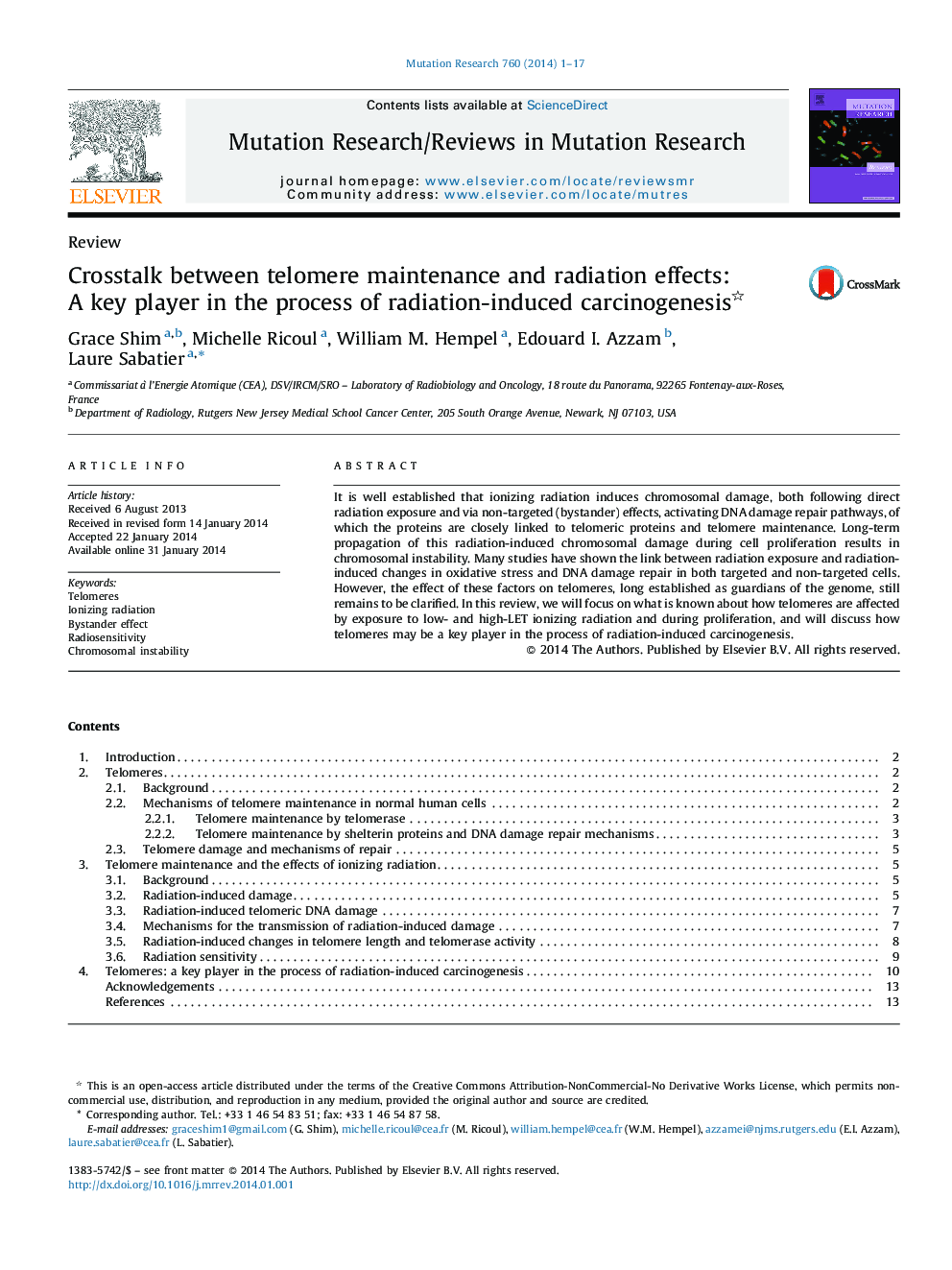| Article ID | Journal | Published Year | Pages | File Type |
|---|---|---|---|---|
| 8456723 | Mutation Research/Reviews in Mutation Research | 2014 | 17 Pages |
Abstract
It is well established that ionizing radiation induces chromosomal damage, both following direct radiation exposure and via non-targeted (bystander) effects, activating DNA damage repair pathways, of which the proteins are closely linked to telomeric proteins and telomere maintenance. Long-term propagation of this radiation-induced chromosomal damage during cell proliferation results in chromosomal instability. Many studies have shown the link between radiation exposure and radiation-induced changes in oxidative stress and DNA damage repair in both targeted and non-targeted cells. However, the effect of these factors on telomeres, long established as guardians of the genome, still remains to be clarified. In this review, we will focus on what is known about how telomeres are affected by exposure to low- and high-LET ionizing radiation and during proliferation, and will discuss how telomeres may be a key player in the process of radiation-induced carcinogenesis.
Related Topics
Life Sciences
Biochemistry, Genetics and Molecular Biology
Cancer Research
Authors
Grace Shim, Michelle Ricoul, William M. Hempel, Edouard I. Azzam, Laure Sabatier,
